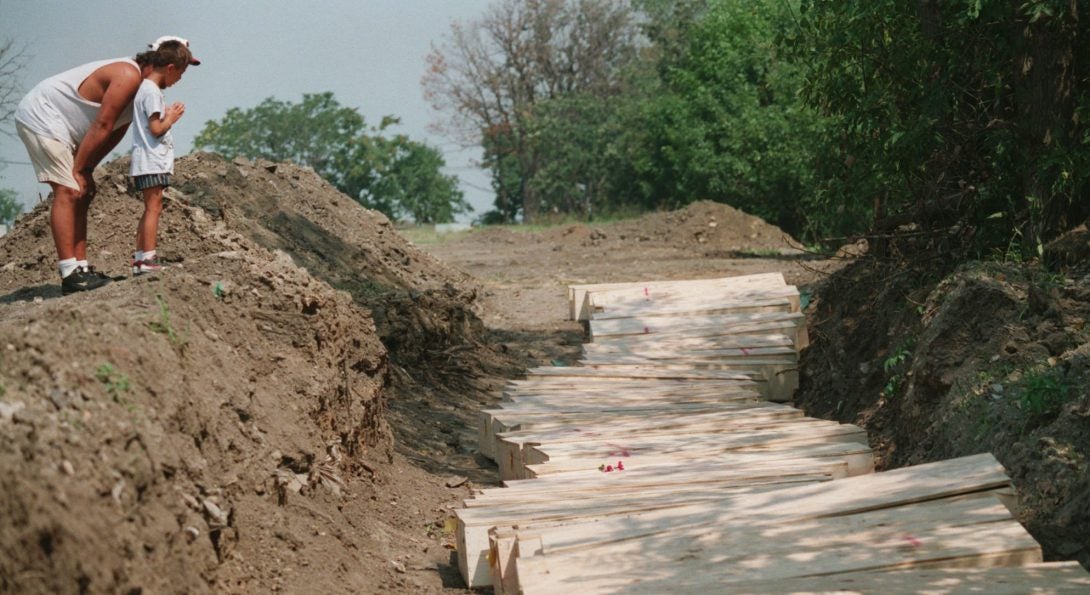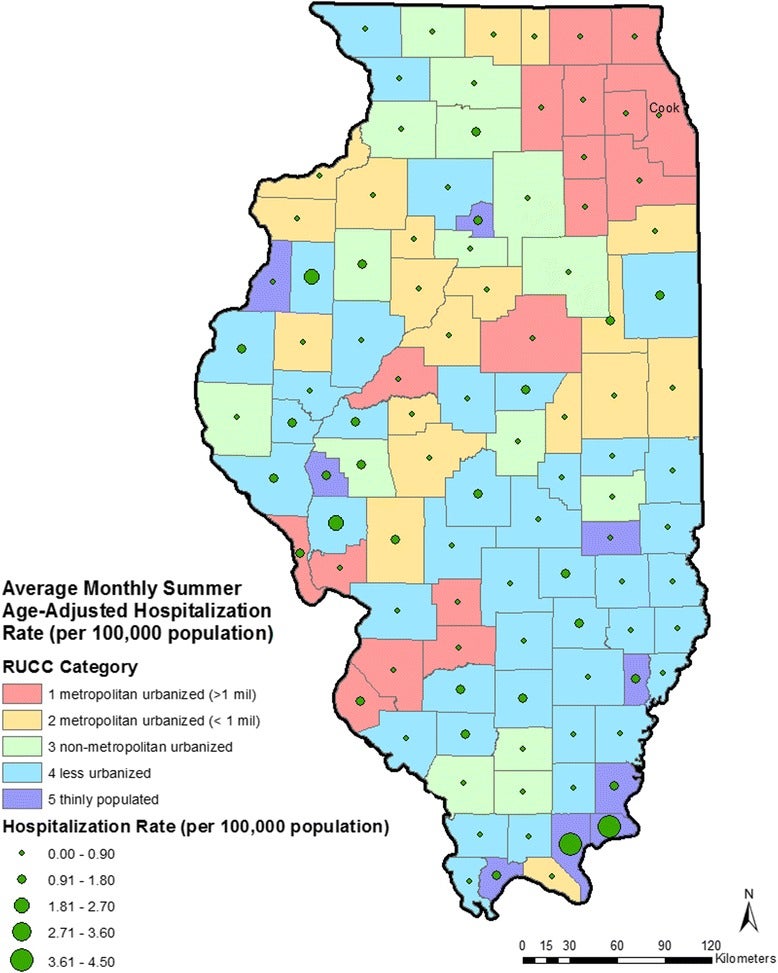Heat Illness

Heat Waves Heading link
Rising temperatures will make summers in Illinois hotter. Heat waves will last longer and will happen more frequently. This means that more people will be at risk for getting sick due to heat.
The image above is of a mass grave of unclaimed bodies who died during the 1995 Chicago heat wave. Over 700 people died, making it one of the worst natural disasters ever in the United States. From July 12th through July 15h the temperature was close to 100 degrees. One day the temperature was 104, but with the humidity it felt like 119. The parking lots, roads, buildings, and sidewalks got extremely hot during the day and kept the city hot a night. That is called the urban heat island effect. Many people tried to cool down by going to the beach or using the fire hydrants in the streets.
Many of the 700 people who died were older adults in communities of color who lived alone in apartments and didn’t have air conditioning or could not afford to turn it on. Most of the victims of the heat wave were found dead in their overheated apartments. Thousands of others were treated for heat-related illnesses in emergency rooms. Many lessons were learned from this disaster and afterwards more effort was put into reaching the elderly and getting people to cooling centers.
Heat Related Illness Heading link
There are different types of heat related illnesses. The table below describes the different illnesses.
Heat Related Illness Table Heading link
| Heat Illness | Symptoms |
|---|---|
| Dehydration | Dry, sticky mouth; headache; not urinating much; dark yellow urine |
| Heat Rash | Red bumps on skin usually on the neck, chest, and folds of skin |
| Heat Cramps | Heavy sweating; muscle pain |
| Heat Exhaustion | Heavy sweating; nausea or vomiting; dizziness; light headedness; weakness; irritability; fainting; fast breathing; fast pulse |
| Heat Stroke | Very high body temperature; fast pulse; fainting; confusion; passing out; convulsions; coma, and in many cases, death |
Extreme Heat in Rural Illinois Heading link

Many people think that heatwaves are only a problem in cities. Cities do have the urban heat island effect caused by the heat absorbed by sidewalks, streets, parking lots, and buildings. But people living in rural areas are at risk for heat illness, like heat stroke. In fact, people in rural counties in Illinois are actually at higher risk of being be hospitalized for heat illness than urban counties. People who live in cities can take a public bus or train to a cooling center, or a neighbor with a car might be able to drive them there. In rural areas, where the nearest neighbor might be miles away, it can be difficult to check in on them to make sure they are okay. Also, in rural areas many people work outdoors in agriculture – physically difficult work that causes people to overheat. There are also more older people who live in rural areas and older adults are at a higher risk of heat-related illness.
The map of Illinois to the right shows the rate of being hospitalized for heat-related illness by county from 1987-2014. The color of the county says how rural or urban the county is, where rural areas are more thinly populated and urban areas are more densely populated. Red is the most urban and purple is the most rural. The dot in the county says how big or small the rate is. The bigger the dot the bigger the rate. The risk of being hospitalized for heat-related illness is higher for people living in rural counties than people living in urban areas. Citation: Environmental Health
People at Risk and Preventing Heat-Related Illnesses Heading link
The elderly, people who do not have air conditioning, people with mental health or heart problems, and those who work outside have a higher risk of getting heat illness. On days when it is very hot everyone should drink plenty of water, avoid physical activities outside during the hottest time of the day, and stay in the shade or in air-conditioned places. On these hot days you can also make sure your neighbors are doing okay, that they are drinking a lot of water, and to see if they need to go to a place with air conditioning.